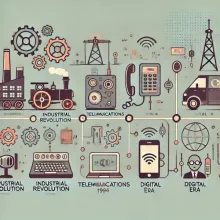Sarah, a small business owner, stood bewildered in the electronics store. "I just need something that works for my business," she told the sales associate. Like Sarah, millions of people face the challenge of choosing the right computer in an increasingly complex digital landscape. This guide will help you understand the different types of computers available today, their uses, and how to choose the right one for your needs.









